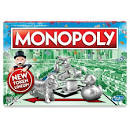Maths
In line with the 2014 National Curriculum we follow the Mastery approach to teaching Maths. Children across the school work on Fluency, Reasoning and Mastery. The strategies for calculations can be found in our Calculation policy as can the strategies for the Mastery of Fractions.
Children begin to experience mathematical language and representations as soon as they enter the school. In the Early years numbers can be learnt through songs, rhymes and practical experience before moving onto concrete apparatus. As the children move through the school the use of manipulatives is actively encouraged. In UKS2 it may be in the representation of more difficult concepts such as ratio, or fractions and decimals.
Children work on their fluency throughout the school which they then apply to a range of problem solving activities. Mathematical language is taught right from the beginning so that the children are able to accurately reason about number and problem solving .Practical experience is varied and used widely across the school.
There are lots of ways in which you can bring Maths to life for your child through simple games and activities. Whether out shopping, using the context of money to help develop your child's skills, or helping them to better understand measurement when baking.
Board games can be great for developing a child's Math's skills too! Playing these can be a really powerful way for young children to become comfortable with our number system, spotting patterns and literally playing with numbers.
Some of our favourite board games (and others) are shown below...

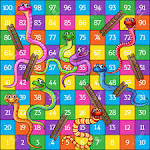
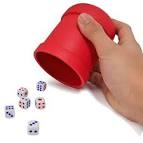
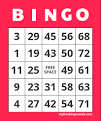

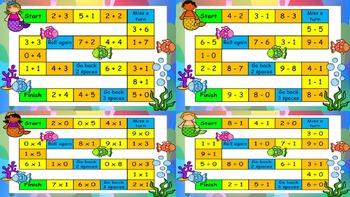
Livingstone Primary Three I's For Maths...
Mathematics is a skill that is and will always be an essential part of everyday life. Therefore, it plays a key role in our broad and balanced curriculum at Livingstone Primary School. The intention of our mathematics curriculum is to provide children with the fundamental skills that enable them to reason and to solve problems, whilst providing them with a lifelong enjoyment of mathematics through fun and engaging lessons. It is also to provide them with the ability to transfer the skills they have learnt in order to apply them to real life experiences. We believe that mathematical fluency is an essential life skill and is a pre-requisite for to being able to reason and problem solve. We utilize the mastery approach in order to provide children with a long lasting and deeper understanding of mathematics.
Our mathematics curriculum provides breadth and balance, is engaging to all pupils and is differentiated to support the needs of all children, in order for them to make progress and excel. As a school, we believe that by following the concrete, pictorial, abstract approach, in line with the mastery approach, children gain a deeper understanding of mathematical concepts, which they can then apply to a variety of different contexts, be this reasoning, problem solving or real life scenarios.
From Reception to Year 6, children follow the white rose scheme of learning. This provides children with the core mathematical skills that they can apply to differing scenarios. Children are presented with opportunities to develop fluency, to reason and to problem solve.
Our maths curriculum is also supported through the implementation of resources from Classroom Secrets. The small steps resources from both White Rose and Classroom Secrets enable the teaching sequence to be broken down into achievable steps. There are also scaffolding resources available to provide children who require additional guidance the necessary support to succeed. This may be via a concrete object with in the classroom or a pictorial representation. For children who understand the concepts quicker, teachers put extension challenges in place to deepen their understanding. This can be via open-ended challenge questions that deepen thinking.
Daily assessment is incorporated throughout the lesson through live and verbal feedback. There are also ‘end of block’ assessments to identify the children’s understanding of each mathematical topic. This also provides teachers with a clear understanding of any gaps in knowledge.
Times tables are a key part of the mathematical learning at Livingstone Primary, as they provide a basis for a large proportion of mathematical concepts. Children are supported to be fluent in their times tables up to 12 x 12 by the end of year 4. This starts with the use of Numbots in KS1 building on their subitising, number recognition and addition and subtraction skills. Children then progress to using TT Rockstars in order to develop their fluency and recall of their times tables. The children also have the opportunity to develop their mathematical understanding through cross-curricular learning in a range of other subjects.
As always, everything we do at Livingstone Primary is with the child at mind. Pupils and staff build strong relationships which creates an atmosphere that is conducive to success. Work is planned to address any misconceptions children may have, as well as identify and fill gaps in learning. The impact of the mathematics curriculum is evident in the progression of assessment data and through book looks, learning walks and observations. Children are assessed formally once a term as well as KS1 statutory assessments, year 4 MTC, end of block checks and Year 6 SATs. This provides an ongoing picture of mathematics across the school.
Here is a list of useful websites to help support with number -
https://www.bbc.co.uk/cbeebies/shows/numberblocks
https://www.bbc.co.uk/cbeebies/grownups/help-your-child-with-maths
http://www.mathematicshed.com/maths-at-home-shed.html
Multiplication sites which may be useful for the Year 4 Times Table Check -
Below is a list of useful websites for times tables and those that mimic what is believed to be the test situation –
This is a great resource. To mimic the times table check select the Soundcheck Area, this allows you to see the 6 seconds.
www.mymaths.co.uk – all of the children have log ins for this. There are lots of games which help with times tables.
https://mathsframe.co.uk/en/resources/category/7/multiplication-and-division
Maths Assessments
The children complete a Baseline assessment as they enter our school in the early years. This is followed by three further points of assessment during their time at Livingstone Primary:
The KS1 SATs tests - sat during the Summer Term of year 2
The Multiplication Test - sat during the Summer term of year 4 (New in 2020)
The KS2 SATS test - sat during the Summer term of year 6
Click here for more information on the SATs test
Click here for some information about the Year 4 Times Table Check
https://blog.oxfordowl.co.uk/what-is-the-year-4-multiplication-tables-check/

